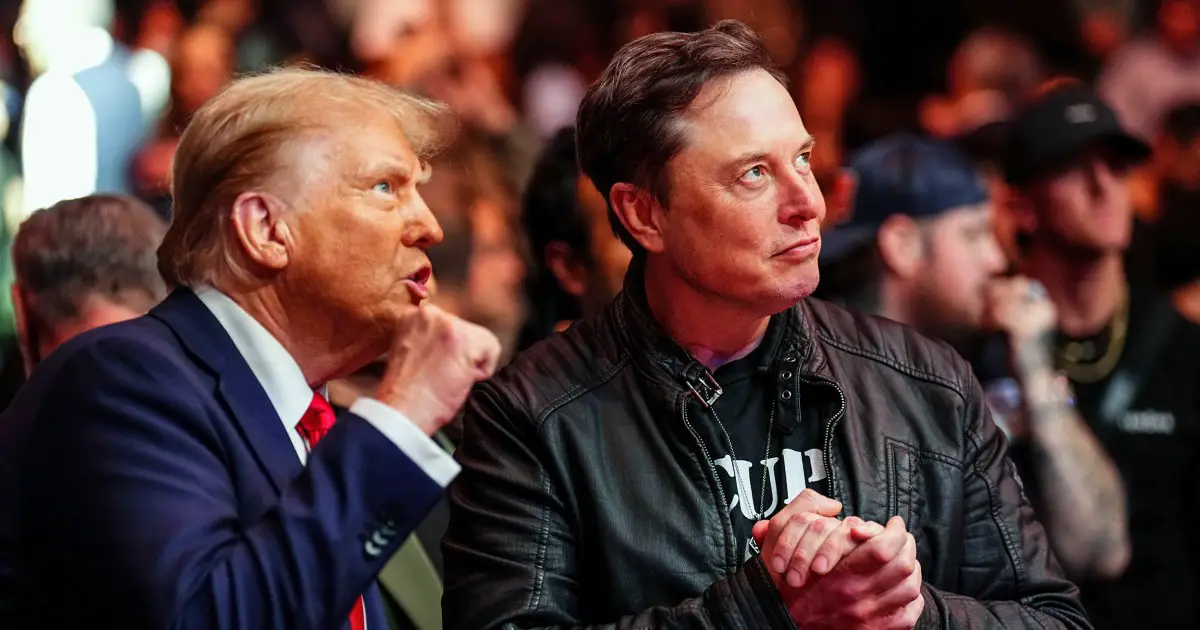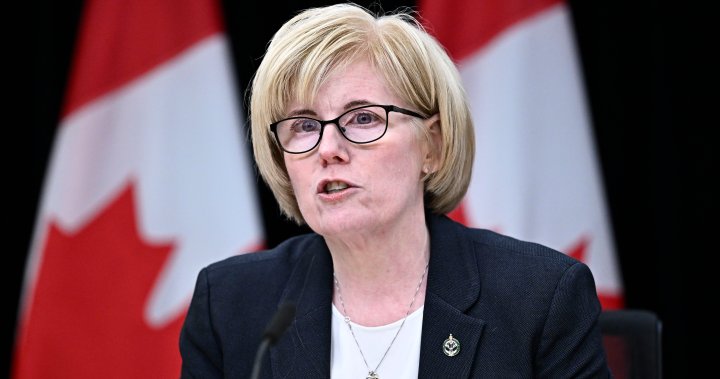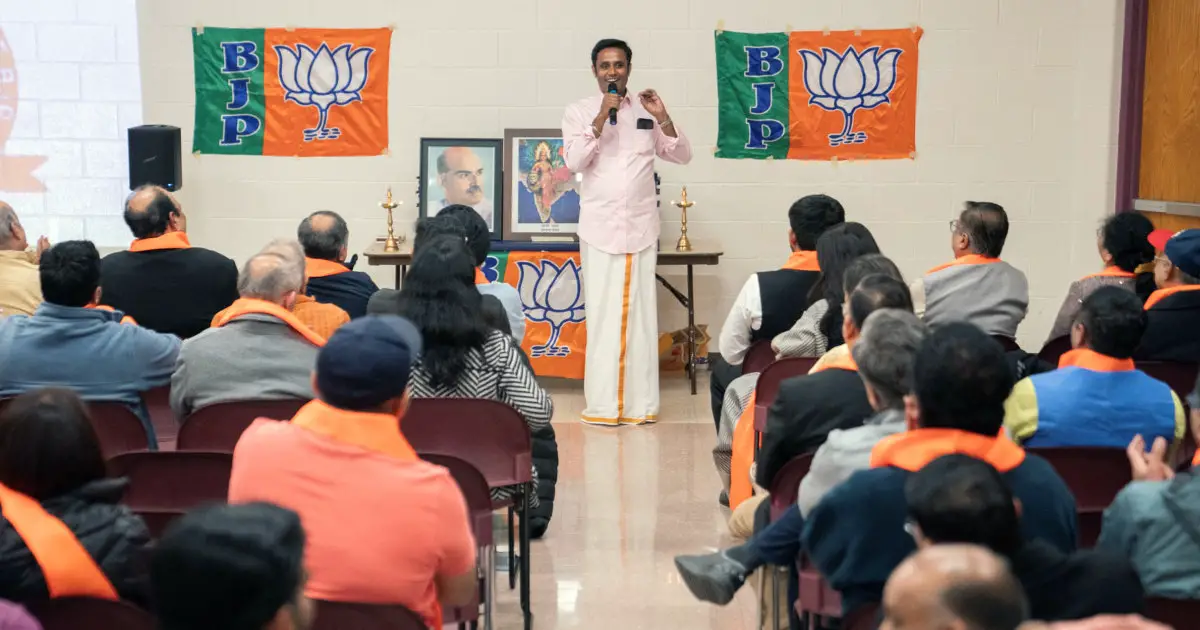
This week the world’s biggest democratic election kicks off in India, as almost 970 million voters decide whether to give Prime Minister Narendra Modi a third term. The election will last six weeks after a campaign that has sprawled across India — and into the United States as well.
Modi’s supporters credit him with putting India on the global stage and turning it into one of the fastest-growing economies in the world. His critics, however, say Modi has fanned a wave of Hindu nationalism, cracked down on opponents, stifled press freedom and stoked religious tensions with Muslims and other minority groups.
In the weeks leading up to the election, which begins Friday, the overseas arm of Modi’s Bharatiya Janata Party (BJP) has enlisted members of the Indian diaspora in the U.S. to campaign on his behalf, either by phone calling friends and family in India or by traveling to India themselves.
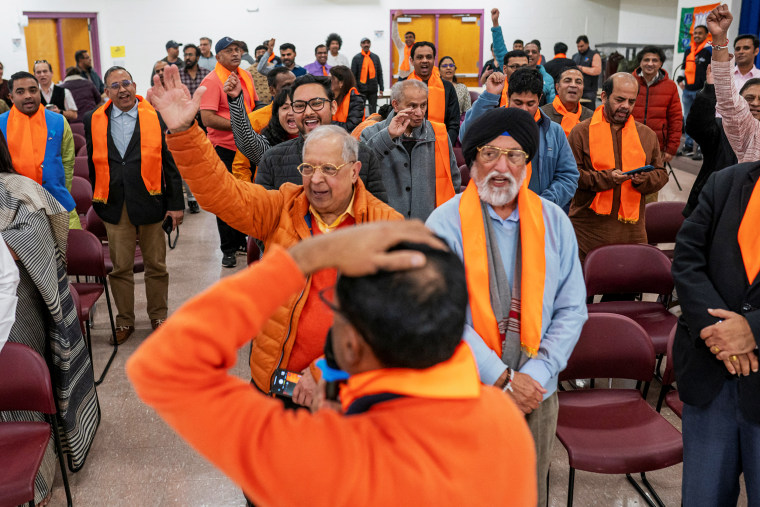
More than 60 Modi supporters turned up to an event at the Potomac Community Center in Maryland last month, many of them wearing scarves of saffron, a color associated with Hindu nationalism.
At the event, leaders of the Overseas Friends of BJP listed what they saw as Modi’s achievements since taking office in 2014: developments in infrastructure, pharmaceuticals, technology and education and, more recently, the inauguration of a grand Hindu temple on a contested holy site.
Attendees were urged to use these as talking points to nudge friends and family in India to vote for Modi, and many stood ready to help.
“Especially when they see me, that I’m from [the] United States, it carries a weight,” said Kanwaljit Soni, OFBJP’s coordinator for the Sikh community, who was planning to travel to India to campaign ahead of the election, which runs from April 19 to June 1.
It’s a familiar routine for him. During the last election, in 2019, he said, he spent three weeks in India traveling from village to village to encourage people to vote for the BJP.
“I will be going to where my roots are in the different states,” he said.
Aware of the gargantuan task of defeating Modi, the fractured opposition has tried to consolidate into a single coalition by fielding a single candidate against the BJP. But many candidates have already switched to the BJP or backed out of the coalition.
“It’s no longer party versus party. It’s a person against a person, and there is no other credible person with a national stature like Modi,” said Sanjoy Chakravorty, a professor of geography, urban studies and global studies at Temple University in Philadelphia and the author of “The Truth About Us: The Politics of Information From Manu to Modi.”
The opposition has been further constrained by what it says are strong-arm tactics by Modi and his government. Dozens of opposition politicians have been jailed or are under investigation, and there were protests last month when Arvind Kejriwal, the chief minister of Delhi, was arrested in connection with corruption allegations that he denies.
Last month, Modi’s government froze the bank accounts of the main opposition party, the Indian National Congress, in a tax dispute. The party said the move was politically motivated and hindered its ability to campaign.
Modi has said that India’s democracy remains robust and that there is “absolutely no discrimination.” His government says the Congress party fears a historic defeat and that its accounts were frozen because it failed to file tax returns for past donations.
The Congress party has also tried to mobilize support among Indian Americans with rallies across the U.S., arguing that India cannot afford a third Modi term.
“Democracy is under an existential crisis in India right now and people are afraid to speak out,” said George Abraham, vice president of the Indian Overseas Congress.
But it is hard to compete with Modi, who experts say has built the narrative of being a “great leader,” his face appearing everywhere in India from outdoor displays to vaccination certificates. That has extended abroad to the Indian diaspora in the U.S., which has never been more passionate about politics at home.
Modi’s state visit to Washington last year drew a few hundred protesters, but thousands of South Asians also flooded the city’s landmarks, either to support him or just to revel in the historic moment.
“It’s the convergence of the whole nation into a person,” Chakravorty said.
Adapa Prasad, president of Overseas Friends of BJP, said the group aimed to reach almost 50,000 members of the Indian diaspora in the U.S., with the goal of helping Modi and the BJP secure a landslide victory.
And Maryland was just the first stop.
The group planned to hold pre-election rallies in 20 U.S. cities, modeled after Modi’s “Chai Pe Charcha,” or “discussions over tea” — televised programs in which he discusses various issues with citizens and top leaders.
There are an estimated 4.4 million people of Indian origin living in the U.S., making them the largest Asian American group, according to the Census Bureau. While many are U.S. citizens, barring them from voting in Indian elections, they may still have family links in India.
For those unable to travel to India, there is also the option of campaigning by phone, Prasad said.
People who are “sympathetic to BJP” will call their relatives in India and urge them to vote, he said.
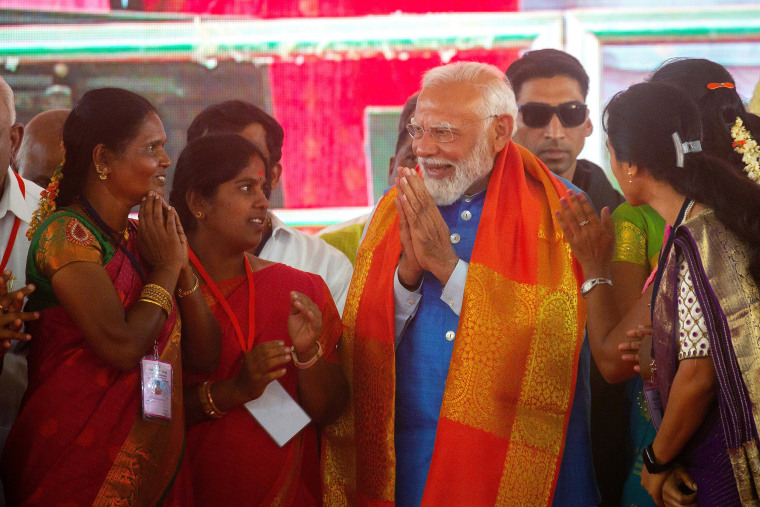
India has a multiparty parliamentary system in which the candidate who receives the most votes in their home constituency wins. The party with the biggest share of candidates in the Legislature gets to pick the prime minister. Even though Modi’s party received 37% of the votes in 2019, it won 303 out of the 543 seats.
Flanked by almost a dozen party flags, supporters in Maryland chanted “Victory of Mother India” and, “This time, above 400” in Hindi, referring to the BJP’s goal of securing more than 400 seats.
Calling Modi a “sensible leader,” Peeyush Uniyal, who is originally from the northern Indian state of Uttarakhand and now lives in Ellicott City, Maryland, said that “especially from the development point of view, I think it becomes a no-brainer.”
He dismissed concerns about the rise of Hindu nationalism as “overblown.”
Virginia resident Upasana Dhankhar said it was her first time venturing into politics. “It’s the consistency of leadership,” said Dhankhar, a former professor of Indian history.
She moved to the U.S. in 2019, the same year Modi revoked the Indian Constitution’s Article 370, which granted semiautonomous status to Kashmir, India’s only Muslim-majority region. The widely criticized move in the disputed territory was followed by the arrival of thousands of troops and a six-month communications blackout.
“Resolving the Kashmir problem was a big thing,” Dhankhar said, mirroring an argument from a PowerPoint slide titled “Article 370 SCRAPPED.”
The BJP’s campaign in the U.S. was another way of revving up Modi’s global fanbase, Chakravorty said.
“The entire civilization is on the rise,” he said, “and they want to be part of it.”


